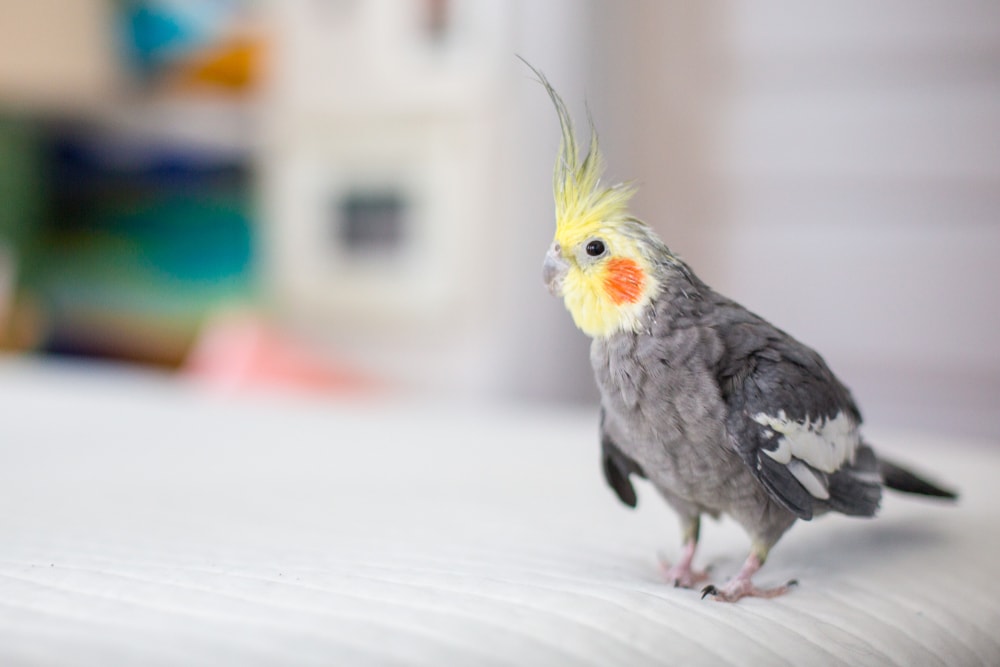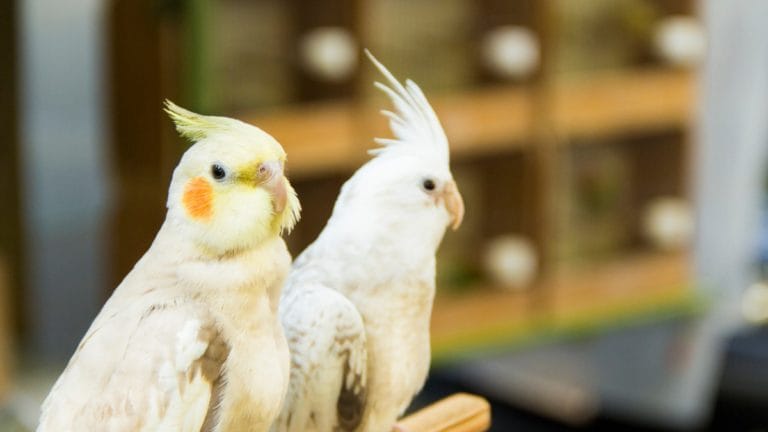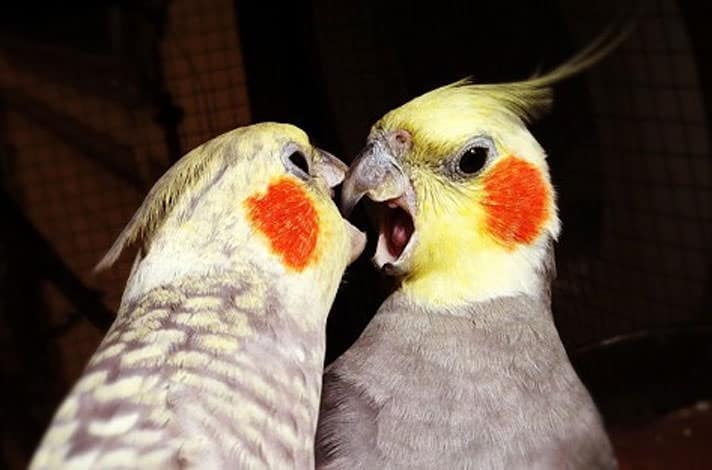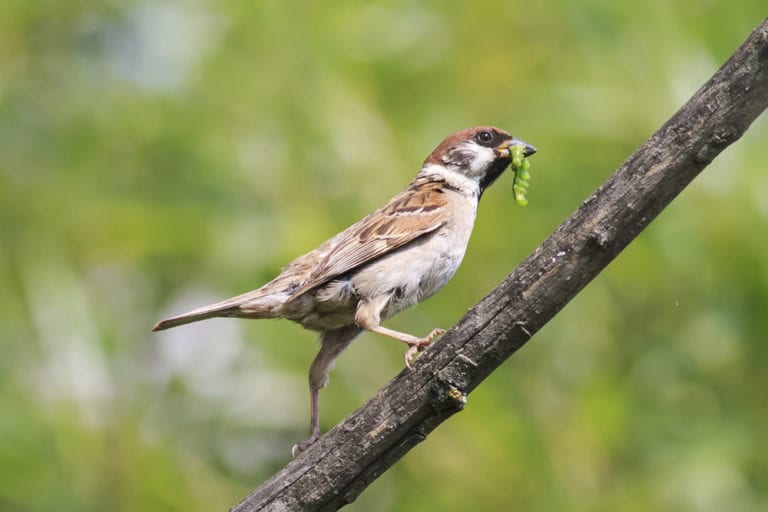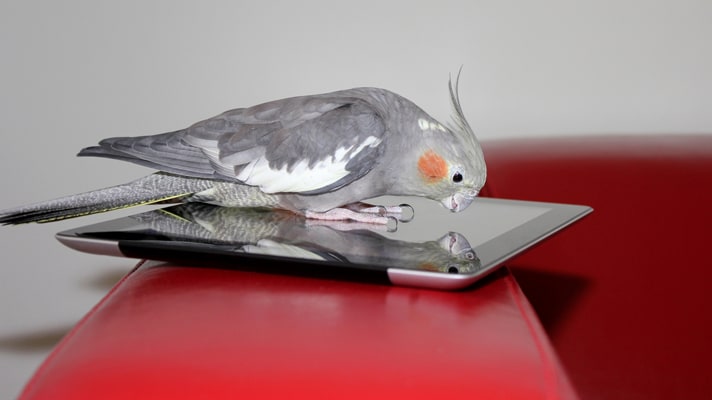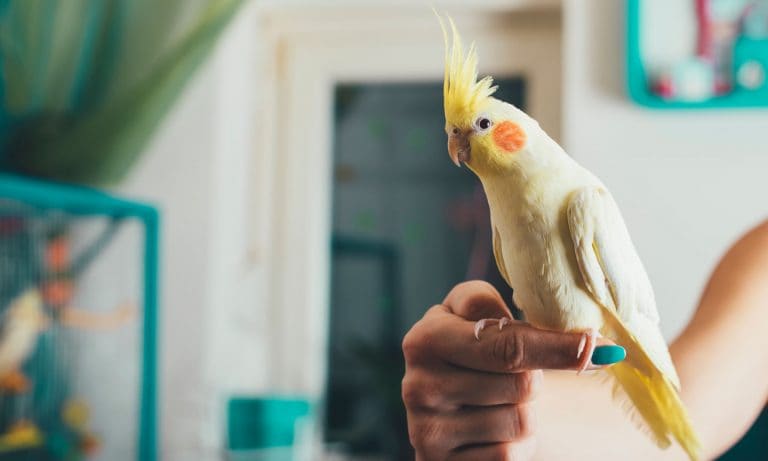If you own a female cockatiel, the probability that she will one day lay an egg is quite high. Instead of asking will she lay an egg, it might be more appropriate to ask when will she lay an egg? This can be a nerve-racking experience for new cockatiel owners, but understanding how it occurs can help deter continuous egg-laying behavior.
As a female cockatiel approaches her first birthday it is not unusual for her to show an increase in a preoccupation with egg-laying. Laying a clutch of eggs is prompted by reaching sexual maturity, which triggers hormones to proceed as nature intended. Your usually sweet hen may become broody, testy and nippy. Don’t take it personally, your cockatiel is simply looking for a mate and a safe nesting site because she is being driven by nature to reproduce.
Six major conditions need to be met to prompt cockatiels to lay eggs. These include adequate nutrition, increased daylight hours, satisfactory temperature and humidity levels, an acceptable mate and a suitable nesting site. In captivity, and for many pet cockatiels, these conditions may be provided without the owner’s awareness.
When kept indoors, cockatiels are non-seasonal breeders, meaning their breeding schedule does not need to coincide with a particular time of the year. Reproduction in cockatiels is influenced by weather, specifically by the amount of heat, humidity and light to which they are exposed, which can also be controlled indoors.
In their native Australia, cockatiels live in the arid interior in desert conditions. They reproduce during the rainy season, when increased rain showers provide an abundance of seeds in the milky stage, which they feed to their young. Offering your cockatiel soft foods, such as table and breakfast foods or commercially prepared heat-and-serve products, can mimic the milky-stage or breeding foods. To remove this trigger, restrict these items to once or twice a week, or eliminate them temporarily. Continue with the normal diet, including plenty of dark green leafy vegetables, and orange/yellow vegetables along with other staples.
The length of daylight hours, or photolight period, also provides enough time for parent cockatiels to seek out an adequate amount of food to regurgitate back to their young. Aviculturists extend the daylight hours by providing additional hours of lighting in the aviary after sunset. To deter breeding, reduce the amount of artificial daylight you provide. Increased rain and the resulting humidity allow more frequent bathing opportunities and provide additional moisture when parents return to incubate their eggs. Adequate humidity levels must be kept for breeding success if that is your goal. If the air is too dry, embryos will adhere to the egg membrane and be unable to rotate in the shell; conversely, if the humidity is too high, it can cause an embryo to drown. Most cockatiels instinctively control humidity levels by bathing in a large bowl of water and return dripping wet to sit on their eggs.
Your female cockatiel may determine what makes a suitable nesting site. Often a broody cockatiel hen tears up paper at the bottom of the cage to prepare a bare, hollow impression for her eggs. Some females select unlikely places – from an open drawer, to a corner of a bookcase, on top of high furniture, or even under a bed. What may seem appropriate to your cockatiel may not always make sense to you, so be aware of prospective nesting sites that your female may deem interesting.
It might surprise you to learn that if you are constantly picking up, holding and touching your cockatiel, it is likely that your female has bonded with you as her chosen mate. She is now proceeding to do as instinct dictates and complete her biological urge to lay a round of eggs and preserve her genes. Try not to touch your cockatiel’s body or rump area at this time, because it may imitate a potential breeding attempt where the male would mount her for mating. Limit contact at this time to head scratches, if accepted, until her broodiness passes and her hormones return to normal levels.
Never remove eggs once they are laid. Wait until your cockatiel is ready to abandon her eggs of her own accord, or she will lay additional eggs to replace the ones lost. This is a biological survival mechanism to ensure that eggs lost (for example, if eaten by a predator), are replaced so that her genes survive.
If you are able to reverse or adjust some of the breeding conditions outlined above, you will help to prevent egg-laying episodes in the future. However, if your female should become a chronic egg-layer, which can become life-threatening, bring your cockatiel to an avian veterinarian for immediate medical attention.
zz
By: Linda S. Rubin
Featured Image: Via InBetweentheBlinks/Shutterstock
Share:
